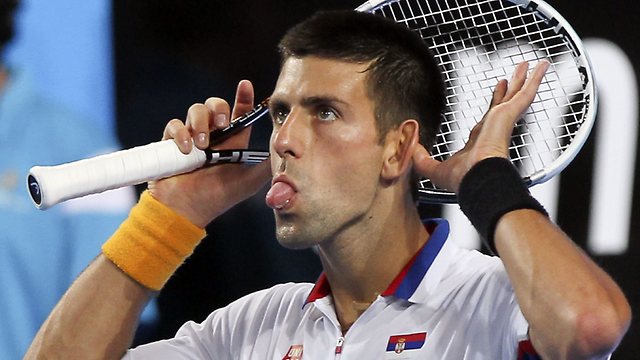
Novak Djokovic, the number-one ranked men’s tennis player, expressed his desire for Lance Armstrong to “suffer for his lies” about doping. Djokovic’s self-righteous indignation came in response to Armstrong’s long-delayed admission that he used erythropoietin (EPO), testosterone and blood transfusions. The world’s top tennis player was so contemptuous of Lance Armstrong that he devoted most of a post-match Australian Open news conference to the criticism of the former seven-time Tour de France winner.
“It would be ridiculous for him to decline and refuse all the charges because it has been proven,” Djokovic said. “They have like a thousand proofs that he’s positive. I think it’s a disgrace for the sport to have an athlete like this. He cheated the sport. He cheated many people around the world with his career, with his life story. I think they should take all his titles away because it’s not fair towards any sportsman, any athlete. It’s just not the way to be successful. So I think he should suffer for his lies all these years.”
The Armstrong scandal compelled Djokovic to make claim to his own drug-free status. He also called athletes in his own sport “the cleanest athletes in the world.”
Djokovic has denied using anabolic steroids and other banned performance-enhancing drugs (PEDs). He welcomed drug-testers to test him anytime to prove his assertion.
Djokovic overlooked the fact that Armstrong was subjected to several hundred anti-doping tests during the course of his career. Armstrong still successfully avoided detection.
Djokovic applauded the International Tennis Federation for its “very good” anti-doping program. Yet the ITF’s program does not come close to matching the rigor of cycling’s anti-doping program.
Cyclists are subjected to multiple blood tests in addition to urine test, both in and out of competition, multiple times per year. Blood testing offers the best method for detecting erythropoietin (EPO). Tennis players, on the other hand, are rarely tested for EPO. In 2011, the ITF collected a total of 21 blood samples for men and women. For the same period, the UCI (cycling’s world governing body) collected 3,263 blood samples for analyses during the period outside of competition alone.
Djokovic admitted he had not been asked for a blood sample for the past 6-7 months.
The question remains: Does the extensive drug testing in cycling make the sport any cleaner?
And also: Is Djokovic justified in his sanctimonious defense of tennis when the sport has one of the weaker anti-doping programs?

About the author
Millard writes about anabolic steroids and performance enhancing drugs and their use and impact in sport and society. He discusses the medical and non-medical uses of anabolic-androgenic steroids while advocating a harm reduction approach to steroid education.

Leave a Reply
You must be logged in to post a comment.